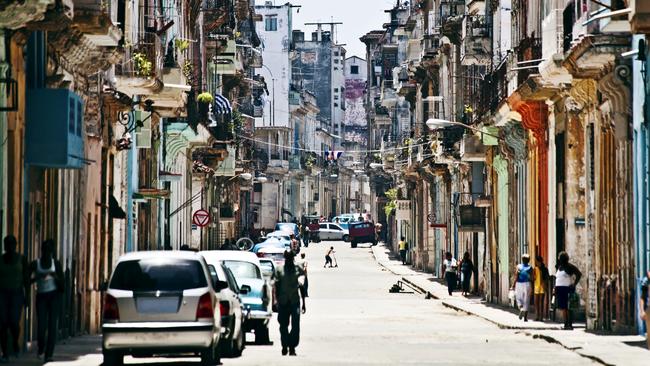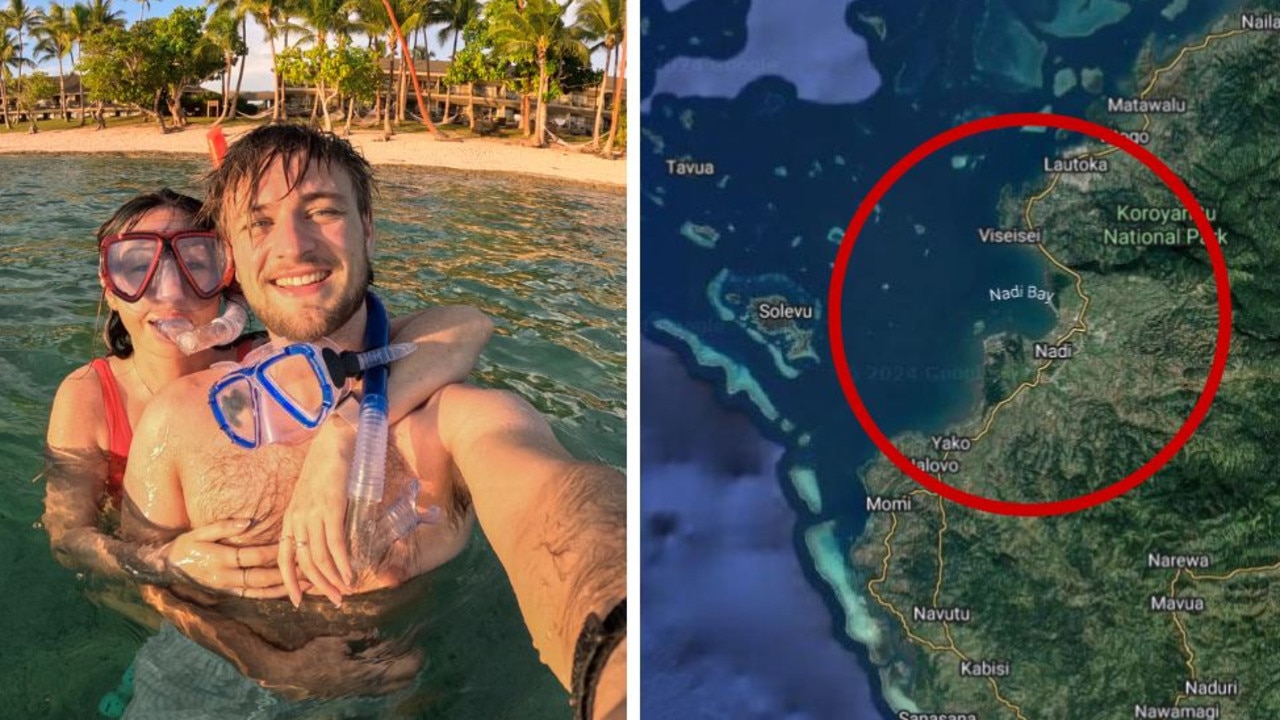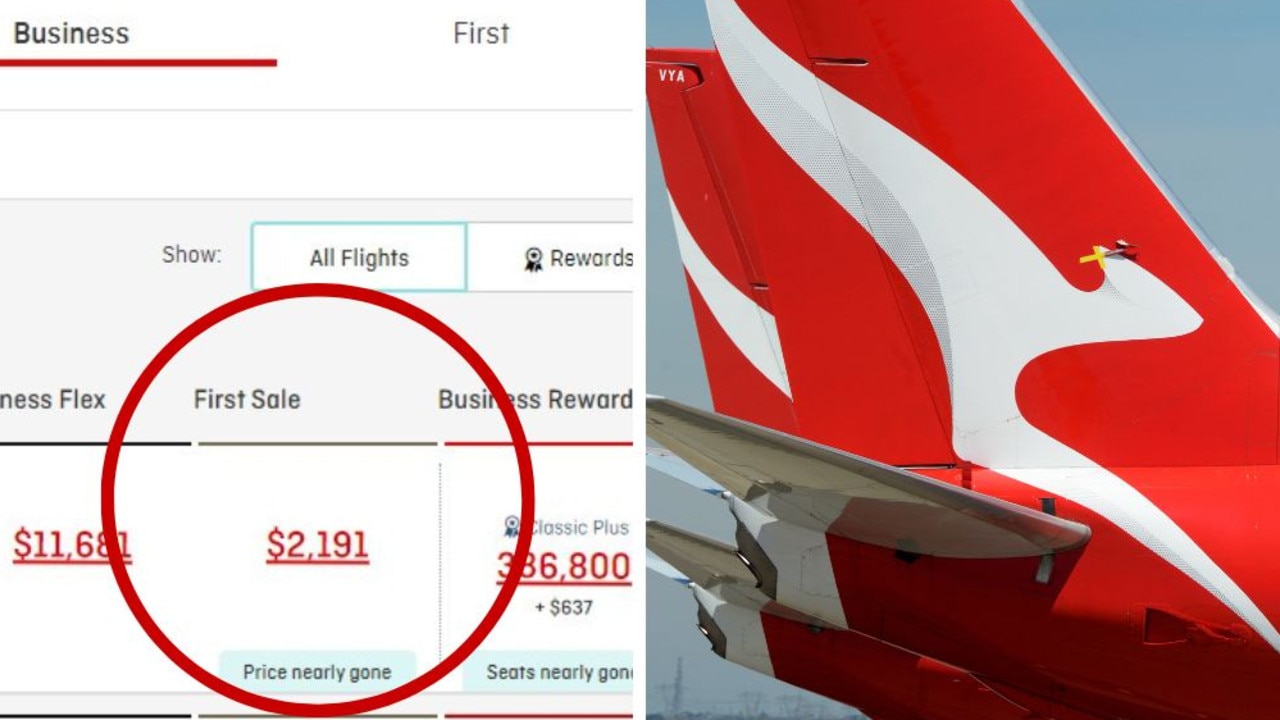Conned in Cuba: The simple scams tourists are falling for
BY THE time Erin realised she’d been conned it was too late. It all started with one seemingly innocent conversation.
BY THE time I realised I’d been conned, it was too late.
I was sitting in a shabby bar in Havana, with two locals I’d just met, who seemed friendly at first but turned out to be like the Cuban version of Will Smith and Margot Robbie in con-artist movie Focus.
It seemed innocent to begin with. A young couple that looked about the same age as my partner and I struck up a conversation with us on the street. They must have known Australians feel downright rude refusing an invitation to go for a drink, because the next minute they were leading the way to a bar where they said they would tell us about some local’s places where we could see live music that night.
We said we’d shout them a drink in exchange for the insider knowledge.
When we got to the bar the guy — let’s call him Will Smith — suggested we order a round of mojitos. Ever the budget-conscious traveller, I asked how much they cost. ‘It’s very cheap here, don’t worry,’ Will insisted as Margot nodded. My request to the waiter for a menu went unanswered.
When the bill came, each cocktail had been charged at $5 CUC (the Cuban Convertible Peso) which is worth around the same as the US dollar. It was outrageously expensive for a dive bar in a rundown part of town — even the bars in the top hotels don’t charge much more than that.
A $20 CUC drinks bill (around AUD $28) wasn’t a trip-ruining amount of money. But as Will and the waiter stole glances at each other as I put the money on the table, I had the feeling I’d been played.
And as it turned out, the ‘secret bars’ Will and Margot recommended turned out to be the biggest tourist traps in Havana.
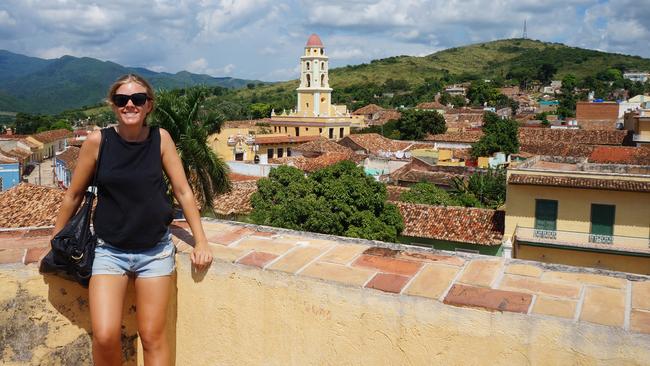
Travel safety expert Phil Sylvester from TID says the bar tab ruse is a common tourist scam in Cuba and other countries.
He says it’s important to remember that anyone who approaches you with an offer of help most likely has a vested interest. “When was the last time you walked up to a tourist in your hometown and tried to press some service on them?” he points out.
The best way to avoid being scammed is to ignore touts on the street, or politely decline their offers. “Be firm, but there’s no need to be rude. Unreasonable confrontation could escalate the situation into something more dangerous.”
He also advises reading up on common tourist scams, because they often follow a similar formula.
Here are the four cons you’re likely to come across in Cuba:
1. THE MILK POWDER SCAM
The scammer will approach a tourist and ask them to buy a bag of milk powder for them from a nearby store. After the tourist has paid for it and left, the local and the store owner split the money, and the bag goes back on the shelf ready for the next unsuspecting person.
2. THE MONEY-CHANGING SCAM
This scam banks on tourists getting mixed up about the two different currencies in Cuba: the CUC, which is what tourists use for most transactions, and the national peso (CUP), which is worth 1/24th of a CUC.
The scammer will offer to change a tourist’s money at the Casa de Cambia (house of change), saying that as a local they get a better exchange rate. They then give the tourist back CUP, not CUC. Always check that you get your change back in the right currency after making a purchase.
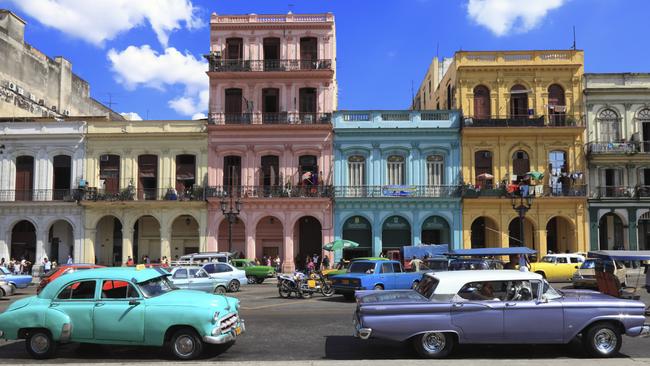
3. THE CIGAR SCAM
Only ever buy cigars from official stores (called La Casa de Habanos) otherwise they’re certain to be fake. There are several legitimate stores in Havana, Trinidad, and other centres around the country. You’ll get plenty of offers from people on the street trying to sell you ‘real’ cigars for discount prices. You know the old adage: if it seems too good to be true ...
4. THE CASA SCAM
It’s common for tourists to stay in ‘casa particulars’ — rooms inside or connected to a family home. Outside airports and bus stations there are often locals who want to show you to their casa in the hope you’ll stay.
Usually these offers are legitimate, but scammers have been known to take tourists to a house that’s not theirs, and then demand a finder’s fee from the homeowner for bringing you there. The real casa owner is then forced to pass this fee onto you, pushing up the price of your accommodation.

